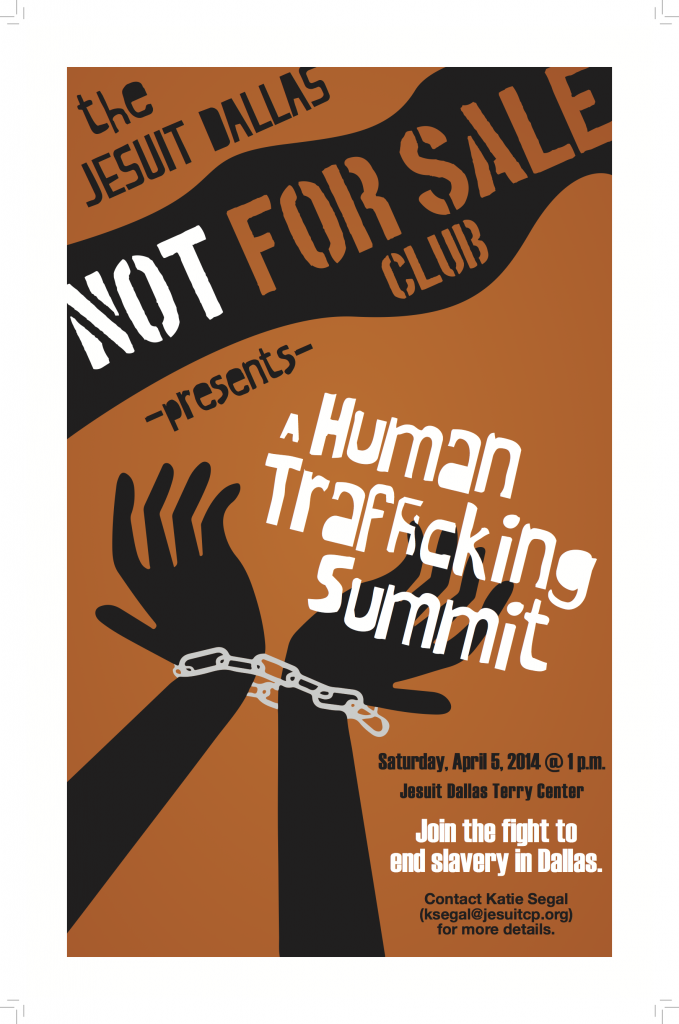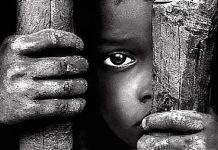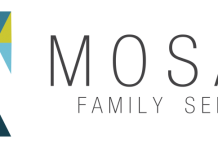Modern Human Trafficking is the third largest international crime industry, behind only drug and arms trafficking. According to the U.S. State Department, approximately 800,000 people are trafficked across international borders every year, and 14,500-17,500 people are smuggled into the US alone. Some estimates also include that more than 70% of victims are women and children. In schools, discussion about slavery is often limited to the mid-1800s, or the Civil War era. Contrary to the false sense of security we receive when we learn about all the unforgivable things in History class, the seemingly ancient issue exists in our modern society today. In 2007, estimates showed that 27 million modern slaves exist and every 30 seconds a person becomes a victim. Further, for every 75,000 victims, only one person is convicted, proving there is an injustice that only gets stronger with ubiquitous ignorance.
Not For Sale Club will hold a summit in the Terry Center this Saturday, April 5, 2014. It will educate people on what modern trafficking is and how it affects people in the United States. Make sure to attend and invite friends if you are interested because everyone is invited.
Take a look at the big picture of the very real situation. It can seem almost overwhelming, and you feel almost guilty because you think you can’t do anything about it, right? The truth is that you can, and the first step is awareness—the goal of the cleverly-named Not For Sale Club.
Founder of the club and Social Studies teacher, Mrs. Katie Segal believes that there is a “vague awareness of it being a problem and it existing. I think the lack of awareness comes in the sense that people think it just happens in foreign countries and that it’s not a problem for kids in America.” She added, “I think movies like Taken have sort of sensationalized it and brought it to the attention to people. This is something that’s not a foreign problem. it’s a domestic problem.”
Towards the end of the 2010-2011 school year, Segal’s first year at Jesuit, a student chose to do his Hot Spot project on sex trafficking. Segal elaborated, “He was very horrified by it and felt very motivated to do something about it. So he wanted to help me start a club… and he suggested that we do something relating to sex trafficking…We both did a lot of research that summer and he suggested an international organization called Not For Sale, and we decided to start a chapter here at Jesuit.”
Segal compared the upcoming summit to “an issues day, but only shorter.” Segal later explained, “The goal of the summit is to bring people from all over Dallas, not just Jesuit, to make them aware that it’s happening in our city and that there is something that can be done about it and that there are things already being done about it.” She added, “We are going to have a bunch of organizations from the Dallas area that service victims of trafficking, lawyers that represent victims of trafficking, and shelters that provide basic human needs to victims.” These organizations will “give a bunch of little presentations so that people in the broader community, especially leaders in the community, can see how to identify [human trafficking], and then they can see anyone that might be a victim…we want to educate and empower Dallas to do something and be aware of [human trafficking].”
Segal concluded by saying, “I would encourage anyone who reads the Roundup, if they know anybody who works in a public school or in a sports league in a community center, to tell those people about it and encourage them to come.” The summit is scheduled on Saturday, April 5th, 2014 in the Terry Center right here at Jesuit. All are welcome to attend.






